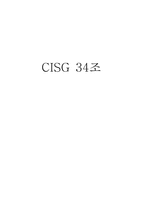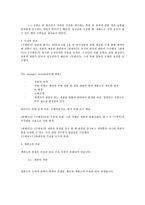2. 번역
3. 분석
1.1 Where a contract was made by the Claimant [Buyer], whose commercial enterprise is located in a State that is not a CISG Contracting State, and the Respondent [Seller], whose commercial enterprise is located in a CISG Contracting State, the relationships in connection with the dispute [arisen from such contract] are governed by the CISG. Russian laws should apply as subsidiary laws. [This conclusion] was reached since the Russian conflict of laws rule sets forth the applicability of the Russian civil laws as the laws of the seller's state. [The Tribunal] also took into account the provisions of Article 15(4) of the Russian Federation Constitution, Article 7(2) of the Russian Federation Civil Code and Article 1(1)(b) CISG.
1.2 Upon ascertaining defects in the goods delivered and differences in the parties' arguments as to how those defects were created and after establishing that both parties failed to set forth in the contract clear requirements as to the quality of goods and methods of their inspection, the Tribunal concluded that both parties were jointly liable. The Tribunal placed two third of the [Buyer]'s losses on the [Seller]. This conclusion was based on the CISG, the Russian Federation Civil Code and the UNIDROIT Principles of International Commercial Contracts.
1.3 When determining the amount of losses suffered by the [Buyer], the Tribunal took into account the computations submitted by the [Buyer]. The [Seller] did not object to [these computations].
1.4 Since in practice both parties deviated from strict compliance with the contractual provisions on the terms and procedure of bringing one's claims, when rendering an award, the Tribunal did not find [such provisions] to be determinative.
2. FACTS AND PLEADINGS
[Buyer], a South Korean company, brought a claim against [Seller], a Russian company, in connection with delivery of defective goods under a contract for the international sale of goods made by the parties on 1 August 2000. The [Seller] shipped the goods to the addressee indicated by the [Buyer]. Since during the inspection of the goods by the addressee it was established that the goods were defective, the [Buyer] demanded recovery of the damages sustained by him.
The damages included:
- The price of the goods;
- Expenses incurred as a result of manufacturing of finished goods from the defective goods delivered by the [Seller];
- Lost profits;
- Expenses incurred in connection with returning defective goods to the [Seller] and delivery of finished goods manufactured from the defective goods.
The [Buyer] also demanded recovery of arbitration fees paid and legal expenses.
The [Seller] objected to the [Buyer]'s claims. In his opinion, the defectiveness of the goods delivered resulted from the improper use by a third party (addressee). The [Seller] also argued that the [Buyer] failed to inspect the goods and bring claims within the period of time set forth in the contract as well as committed violations when inspecting the quality of the goods. The [Buyer] objected to all of [Seller]'s allegations.

- 오늘 본 자료가 없습니다.
- 유아 연령별 발달에 따른 문학 교육의 접근법과 교사의 역할에 대해 정리하시오
- [A+ 리포트] 제4차 표준보육과정에서 예술경험에 대한 활동사례를 제시하고 영아의 경험이해와 교사지원을 구체적으로 작성해 보세요.
- 제4차 표준보육과정에서 예술경험에 대한 활동사례를 제시하고 영아의 경험이해와 교사지원을 구체적으로 작성
- 미래 유아교사에게 필요한 핵심역량과 디지털 역량에 대해 기술하고, 자신의 디지털 역량을 강화하기 위한 계획을 서술하시오
- 위렌(Warren, 1978)이 언급한 지역사회의 개념을 설명하고 지역사회의 중간적인 역할에 대해 논의하되 자신의 의견을 첨가하여 기술하시오.
해당 정보 및 게시물의 저작권과 기타 법적 책임은 자료 등록자에게 있습니다. 위 정보 및 게시물 내용의 불법적 이용,무단 전재·배포는 금지되어 있습니다. 저작권침해, 명예훼손 등 분쟁요소 발견 시 고객센터에 신고해 주시기 바랍니다.





















 분야
분야

